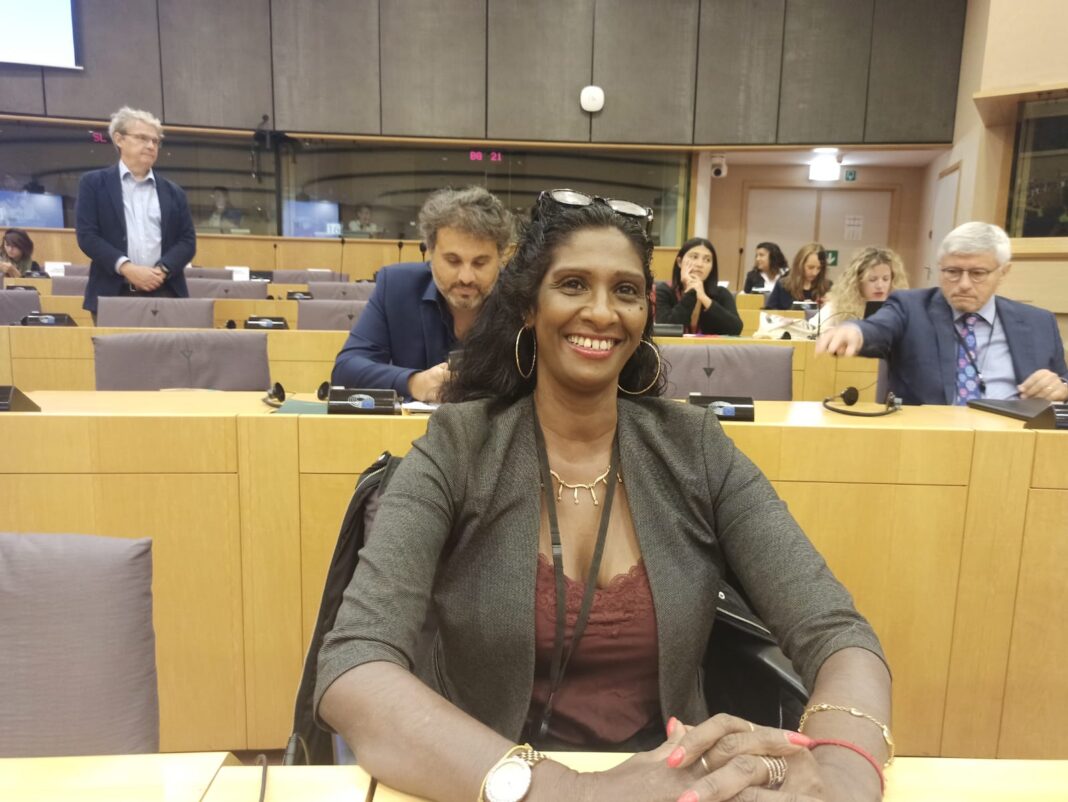In January 2022, as the first RN (Rassemblement National – National Rally) MEP from overseas France, I conducted a disillusioned assessment of my work within the Identity & Democracy group. I highlighted the disparity between the official discourse, which was highly favourable to the French overseas territories, and the reality of certain votes that diverged significantly from the interests of our 2.2 million compatriots residing in the “outermost regions.” Consequently, I decided to depart from the Identity & Democracy Group and sit as an unaffiliated member. This choice entailed the loss of several political advantages but allowed me to rekindle my fundamental values: freedom from any “voting discipline” and the vital freedom of speech necessary for my full engagement in the causes close to my heart.
Simultaneously, I announced my endorsement for Éric Zemmour’s presidential candidacy.
This endorsement was unconditionally given, devoid of ulterior motives, and solely motivated by Éric Zemmour’s declared ambition to champion greater France, a France that doesn’t view its 12 overseas territories as historical burdens but as treasures to be polished. Éric Zemmour shared my conviction that there is a far better path for our overseas territories and their inhabitants than keeping them mired in poverty and welfare. At that time, I was convinced by his sincere and proactive message, which I saw as an enormous opportunity to gain the trust of territories that had previously held the national right in suspicion.
I experienced this presidential campaign with fervour and enthusiasm. I am profoundly grateful to Éric Zemmour for affording me the opportunity to witness the extraordinary atmosphere at his massive rallies. I encountered remarkable and selfless campaigners, deeply committed to our country’s future. This passionate grassroots base was characterized by kindness and attentiveness. Éric Zemmour deserves significant credit for uniting more goodwill and talent than the national right had ever assembled.
However, the final outcome failed to meet our expectations. In the overseas territories, despite a substantial number of activists and the valiant efforts of dedicated regional delegates, our political message remained unheard. How could it be heard when the candidate made no visits to the overseas territories? How could it be heard when the numerous proposals I submitted to the candidate were never translated into a comprehensive program? How could it be heard when the detailed plan I had crafted for overseas France was printed only 10 days before the first round, relegating it to insignificance?
I lament the fact that Éric Zemmour’s only significant presence in overseas France occurred during an interview with Outre-mer la 1ère on March 22, 2022, when the candidate, inexplicably, referred to colonization as a “blessing.” While I have no doubt that Éric Zemmour loves the French overseas territories, as he has frequently stated, he seemingly lacks a deep understanding of them. Failing to acknowledge the suffering endured during the colonial era by the various peoples comprising the Overseas Territories, whether enslaved or not, is both a moral and political failing. My friends in the French Overseas Territories, although initially well-disposed toward him, were scandalized by this statement, and the last month of the campaign in the French Overseas Territories turned into a protracted ordeal. I was on the verge of retracting my support for Éric Zemmour upon hearing his words, and it was only my concern not to harm a candidate already in dire straits that kept me from doing so.
The conclusion of the presidential campaign marked the end of my association with Éric Zemmour. Despite overtures, I never entertained the idea of joining his party or becoming involved in its structures. I cherish my freedom too dearly, and I am deeply committed to defending the best interests of the overseas territories.
Today marks the commencement of a new chapter in my political journey. I have accepted the honour bestowed upon me by Christian Vanneste, the honorary president, to assume the role of President of the “Rassemblement pour la France”. As a staunch conservative with a profound attachment to tradition, I am acutely aware of the responsibility entrusted to me in leading a movement with such illustrious roots as those of General de Gaulle and Charles Pasqua.
I pledged to the RPF Steering Committee that I would unwaveringly adhere to the Gaullist and socialist principles embraced by the party. These principles align with the ideals I have consistently championed and are reflective of the contemporary needs that continue to underscore General de Gaulle’s vision. In addition to preserving this political legacy, I aspire to introduce a new dimension. I have come to realize that as French society becomes increasingly fragmented, two categories of French citizens are consistently overlooked: the 2.8 million French individuals residing overseas under often challenging conditions, and the 3.5 million French expatriates living abroad, whose extraordinarily diverse individual situations are inadequately addressed by public authorities.
Recognizing this neglect affecting nearly 10% of our fellow citizens, I proposed to the RFP Steering Committee a name change for the party, now to be known as the Rassemblement pour les Français d’Outre-mer et de l’Étranger (RPF-OME). This transformation, while fully embracing the Gaullist heritage of the RPF, signifies our openness to all French individuals, including those residing far from our borders.
This new RPF-OME will adopt an unequivocally constructive approach. Rejecting partisan politics, it will not succumb to the facile temptation of baseless criticism, vitriolic rhetoric, or sensationalism. It views public discourse not as a battleground for defeating opponents but as a platform for forging political compromises on issues that genuinely matter to the French people.
As President of the RPF-OME, I aim to be a valuable voice for our compatriots, particularly those who find themselves distant from the centre of public action and decision-making. In all circumstances, I will strive to make General de Gaulle’s adage my own: “Always occupy the highest position, as it is typically the least crowded.”






